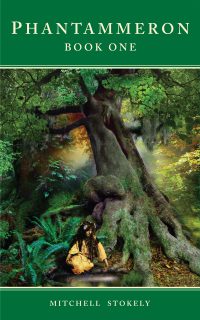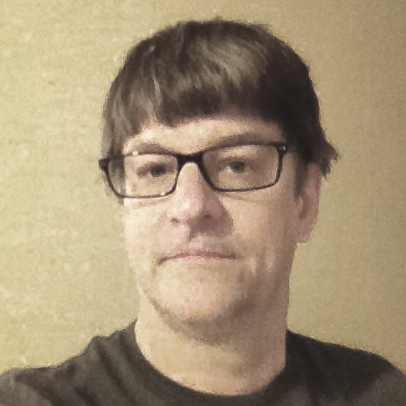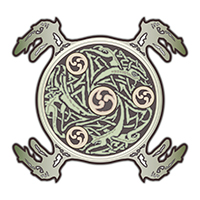Excerpt From Phantammeron Book One by Mitchell Stokely
“The Shadow then looked down at Ana with his glowing red eyes, which bulged from his sallow and sunken ebony face. With a sinister grimace, he said, “At last we meet again. Yet joyless it seems. Let it not be like a tragic family reunion, one wrecked by endless disappointments and regrets. Let it be renewed, this kinship we share. I was such a fool to have left you on the very eve of our initial date. For I had so many things to share with you. Forgive my errant ways, my coarseness, and my crudity. I can only offer you this rose, as I seek your forgiveness.” The Shadow reached out with his dark claw to hand her the black bloom. But Ana backed away, cowering in fear of him.

The Shadow then looked at her, smiling. “It is no matter,” he said, his eyes now blazing forth like dark red coals. “You are indeed your father’s child. You have destroyed the pool, as I have the tree. Like two sickened lovers drawn together by their perverted passions, wed in secret to each other through pleasurable purpose, we have defied the will of the better world by our acts. Have we not committed crimes together, sundering the union of the tree and pool by our own degenerate desires? For the malevolent mind of the evil that yet dwells in the Great Beyond planned these acts long ago. By its own dark seeds has its evil will now been sown in Phantaia through us, its fallen children.”
This small excerpt was one of my favorite parts of the novel as it allowed me to come full circle with the Shadows dominant motivations – that of figuring out what Ana was up to and the purpose of the Sacred Waters she carried inside her. Only he knew, in the end. I had not planned this last scene in the novel, as I had originally expected Agapor to finish him off in some form. But it made more sense that Ana’s death and release of the waters would be part of his demise. What I enjoyed most was his highly intelligent dialogue and the connections he made to Ana emotionally, telling her they together had destroyed Phantaia, which was true. Even though he had murdered Ama, her love interest, it was she who drank from the Sacred pool, destroying it and so aging and dooming Ama.
The Shadow’s words came into me out of nowhere, and poured out onto the page. This whole conversation was exciting to write as the Shadow pretty much showed me what needed to be said. I then saw that his place in the world and his true motivations in trying to destroy so much of Phantaia. His Evil was not like the Nothingness. It was direct, simpler, purer. He hated the One Tree and its burning light, but he hated life-giving Phantaia and its people even more. He hated his father. He hated his family. There was nothing left in him but to gather greater power to himself, which he would do with the help of his dark Mother, Anissa, whose motivations extended beyond her errant son.
The Shadow’s “evil will”, though almost blandly predictable and traditional, was important to me in my stories. He represented the “man in the black cape”, the boogeyman, the demon or devil you see in every book, story, or piece of fiction conceived (especially prior to 1990). His characteristics are our own. They are modern Man’s. Yet, it is only in more recent, modern times “good versus evil” has falsely been put down as a relic of religious “morality plays”. And so recently, many have rejected “good vs evil” as a story arc. The sad fact is, in 2021 we live in a hollow Age of Realism, where such things born of dark mists as “evil” no longer exist simply because so many have rejectde psychology, religion, and myth in 2021. But they still do exist. Shadows still matter. Your shadow-self matters.
Even if you scoff at “Good vs Evil” tropes in modern books in 2021, you miss out on the purpose of Western Fair Tale and Myth. It has not passed down from thousands of years of story-telling to fill in as a story arc. It was not created for you to so easily and arrogantly reject in this last great age of novel writing, either. It is in fact a reflection of the light and shadow in us. But it is also formed in our psyche from the cultural myth of the movement of the Sun and the change from Summer to Winter in the ancient Western cultures that once dominated the Northern Hemisphere. I talk about those myths in my many online articles and in my YouTube series.
Knowing that such a trope as “Evil” and darkness will live on after we are all dead and gone, it might ask from you as a reader or writer to still consider it’s mysterious meaning and purpose. If you choose to laugh at such a story trope as “good vs evil”, I ask you to think about goodness and darkness in your own life.; in your life choices and in the depths of your own hopes and fears. For such a wise old owl as myself, the Shadow and his power to move audiences in the eternal struggle of light versus darkness shall remain. The Shadow and “evil” is part of that which we must recognize and yet fight in ourselves, or we shall someday become the monsters we fear.
– the Author



